TSMC’s Kumamoto plant opens as most advanced fab in Japan
02/24/2024
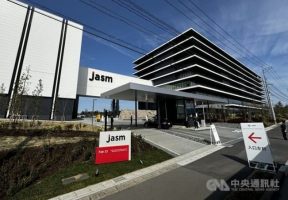
Kumamoto, Japan, Feb. 24 (CNA) Taiwanese contract chipmaker Taiwan Semiconductor Manufacturing Co. (TSMC) officially opened Japan’s most advanced wafer fab in Kumamoto on Saturday.
Addressing the opening ceremony, TSMC founder Morris Chang (張忠謀) said the Taiwanese chipmaker was invited in 2019 to build a fab in Japan and he was delighted the idea about the investments became a reality five years later.
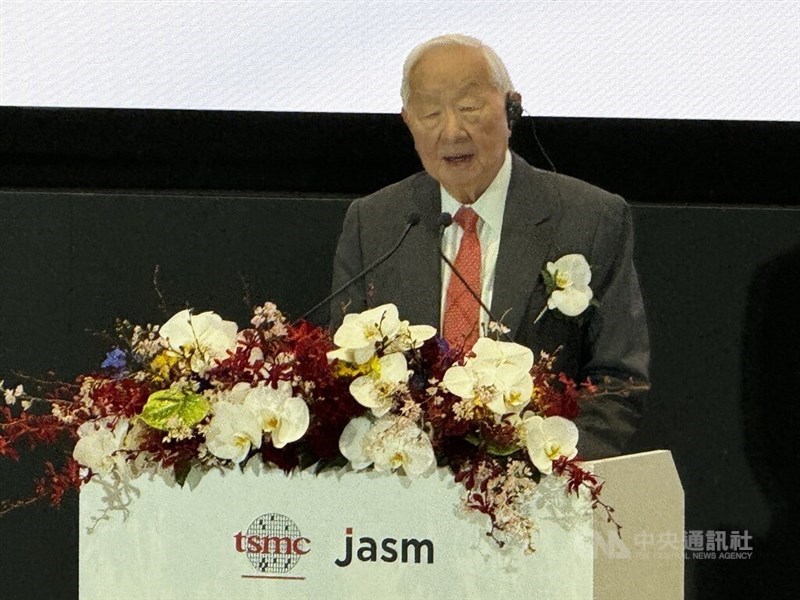
Chang said he anticipated demand for chips would be tremendous in the future, adding that artificial intelligence (AI) applications are expected to need much more production capacity and the market would need more wafer fabs to meet the demand.
Construction of the fab, TSMC’s first in Japan, started in April 2022 and with strong support from the Japanese government and TSMC’s Japanese partners.
The plant was inaugurated Saturday with mass production scheduled to begin in the fourth quarter of this year, making it the chipmaker’s overseas production site with the fastest development progress.
Through its joint venture — Japan Advanced Semiconductor Manufacturing (JASM) — the fab will roll out chips made of TSMC’s mature 12 nanometer, 16nm, 22nm and 28nm processes, with a monthly production capacity of 55,000 units to become the most advanced logic semiconductor fab in Japan.
Currently, JASM, which is owned by TSMC, Sony Semiconductor Solutions Corp. (SSS) and Denso Corp., has a workforce of more than 1,000, including 300-400 sent by the TSMC from Taiwan, and the number is expected to increase to about 1,700 when mass production of the first fab starts.
Chang said when he served as a vice president of the U.S.-based Texas Instruments Inc. in 1968, he visited Japan for the first time to push for a joint venture with Sony to build a fab in Japan, which opened in 1980.
Chang said his experiences with Texas Instruments allowed him to find in 1985 that there were similar conditions in Taiwan and Japan.
Consequently, Chang said he decided to launch the pure play foundry business in Taiwan in 1987, setting up TSMC, which now is the largest contract chipmaker in the world.
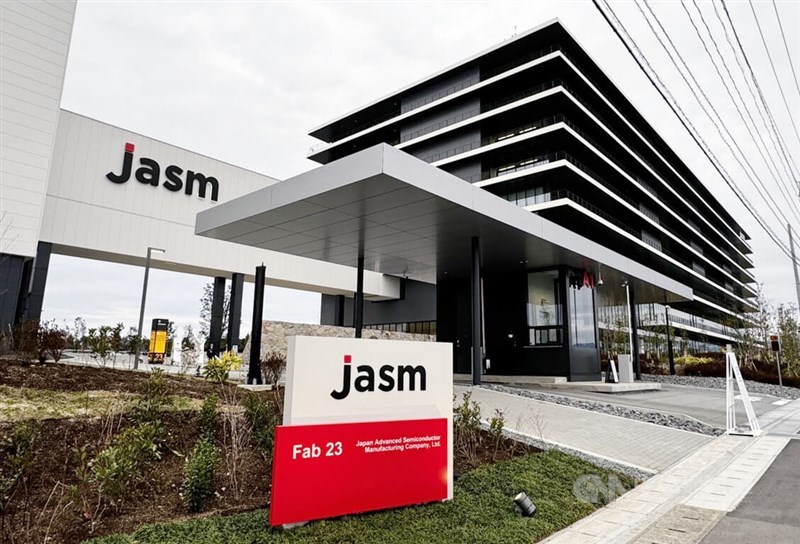
He said he had high hopes that JASM would succeed, adding that he had faith the joint venture would strengthen the resilience of the global semiconductor supply chain and help Japan’s semiconductor industry make a comeback.
In a recorded video, Japanese Prime Minister Fumio Kishida, who flew to the Noto region of Ishikawa Prefecture to survey the damage caused by a strong earthquake in early January, said TSMC’s investments in Kumamoto were a critical step for the development of the semiconductor industry in both Japan and Taiwan.
Kishida said the Japanese government has provided unprecedented and bold support to help JASM carry out the investment plan in Kumamoto by streamlining an investment application process and allowing the construction of the fab to proceed 24 hours a day to shorten the construction time.
In response, TSMC Chairman Mark Liu (劉德音) expressed his gratitude to the Japanese government and the company’s business partners in Japan at the opening ceremony, promising JASM will make purchases from the Japan market in a bid to build a stable semiconductor supply chain.
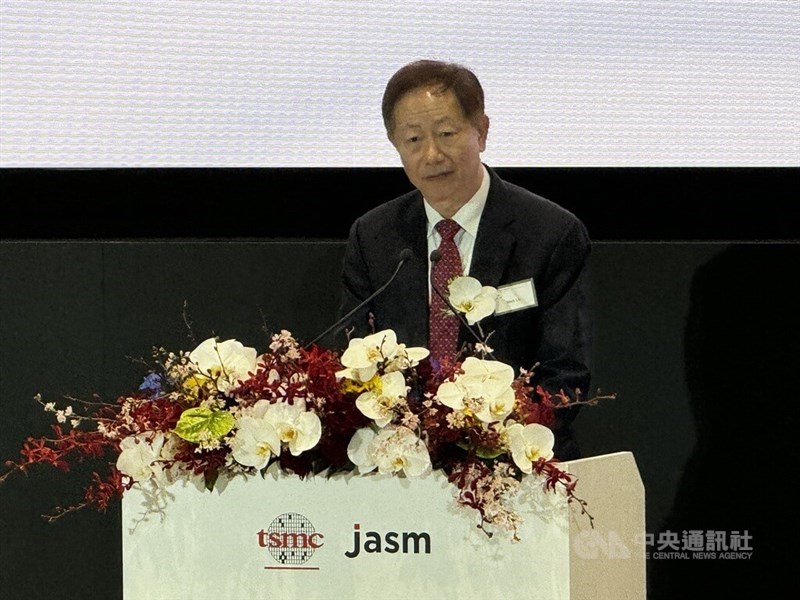
Liu said JASM will also follow TSMC’s step to deliver on its pledge to push for environment, social and governance (ESG) initiatives and do its best to strengthen green manufacturing with a goal of water conservation through the use of 100 percent recycled water in Kumamoto.
Liu added JASM is expected to create more than 3,400 high-tech jobs in Kumamoto, aiming to vault the semiconductor industry to new heights.
On Feb. 6, TSMC announced to build a second fab in Kumamoto, saying Japanese auto giant Toyota will join JASM with the chipmaker expected to hold an 86.5 percent stake in the joint venture and SSS, Denso and Toyota to own 6 percent, 5.5 percent and 2 percent.
The second fab will break ground at the end of this year with commercial production to start at the end of 2027.
Together with JASM’s first fab, the overall investment of JASM will exceed US$20 billion, TSMC said, adding that it had strong support from the Japanese government.
After completion of the two fabs, JASM is expected to roll out more than 100,000 12-inch wafers a month under the maximum capacity, using the mature 40 nanometer, 28nm, 22nm, 16nm, 12nm processes as well as the advanced 7nm and 6nm technologies, TSMC said.
According to TSMC, JASM’s chips will be used for production of automotive, industrial, consumer and high performance computing (HPC)-related applications.
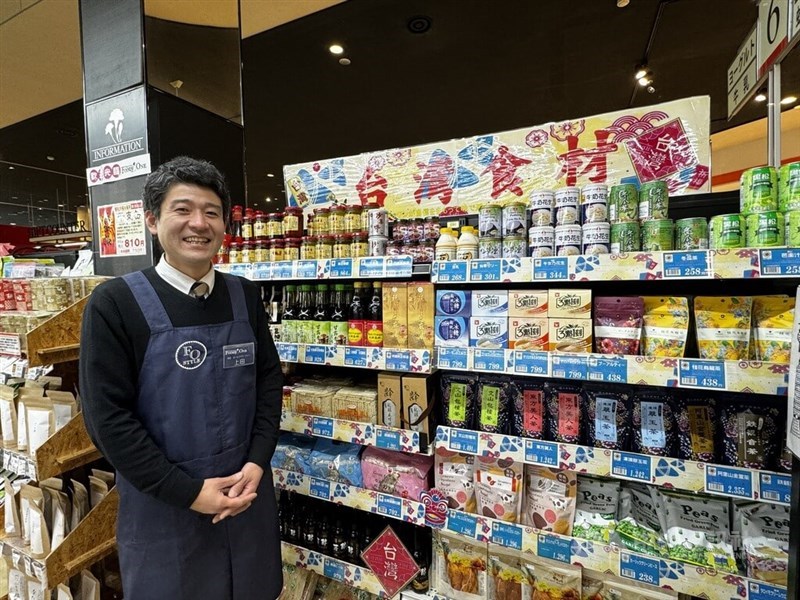
As for the second fab in Kumamoto, Kishida said the Japanese government will continue to provide assistance to JASM.
Taipei-based market information advisory firm TrendForce Corp. said in a recent research report that abundant underground water resources in Kumamoto was one of the main reasons TSMC chose the location to build its fabs.
TSMC’s investments in Kumamoto have attracted close attention in Japan as the presence is expected to create a semiconductor cluster in the country and bring in tremendous economic benefits for Kumamoto and the island of Kyushu, market analysts said.
Source:TSMC’s Kumamoto plant opens as most advanced fab in Japan – Focus Taiwan

